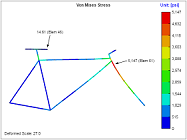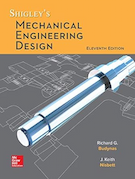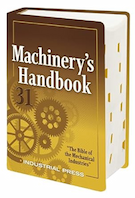5 Strategies for Effective Continuing Education in Engineering
As an engineer, continuing education is a crucial part of staying up to date with the latest developments in your field, improving your skills and knowledge, and advancing your career. However, with so many options available, it can be difficult to know which courses to take and how to get the most out of your investment. In this article, we'll explore strategies for maximizing your learning experience, so you can make the most of your time and resources.

1. Define Your Goals
Before you start taking courses, it's important to have a clear understanding of what you want to achieve. Are you looking to improve your technical skills in a specific area? Do you want to gain new knowledge and stay ahead of the curve in your field? Or are you looking for professional development opportunities that will help you grow in your career? We offer a set of online engineering courses that are ideal for engineers looking to advance their professional development along the technical career track.
Having a clear understanding of your goals will help you make more informed decisions about which courses to take and how to allocate your time and resources. It will also help you stay motivated and on track throughout the learning process.
2. Choose the Right Courses
Once you have a clear understanding of your goals, it's time to start exploring your options. Look for courses that are relevant to your field, challenge you to learn new things, and align with your goals. Make sure to read course descriptions and reviews, and talk to other professionals in your field to get recommendations.
When choosing courses, it's also important to consider the format. Online courses, webinars, and in-person workshops all have different benefits, so it's up to you to determine which format is best for your learning style. For example, if you're looking for hands-on experience, an in-person workshop might be the best choice, while an online course might be more suitable if you need flexible scheduling. The courses that we offer are all online and are designed to be completed within a brief time frame.
3. Get Involved
Once you've started taking courses, it's important to get involved and actively engage in the learning process. This might mean participating in online discussions, working on group projects, or asking questions in class. The more actively you participate, the more you'll get out of your courses and the more you'll remember after you've completed them.
4. Practice What You've Learned
One of the best ways to maximize your learning experience is to put what you've learned into practice. This might mean working on projects, trying out new techniques, or volunteering to help others. Practicing what you've learned will help you consolidate your knowledge and develop a deeper understanding of the concepts you've studied.
5. Keep Learning
Finally, it's important to keep learning, even after you've completed your courses. This might mean reading industry blogs, attending conferences, or participating in professional organizations. By staying engaged with your field and continuing to learn, you'll stay ahead of the curve, improve your skills and knowledge, and advance your career.
PDH Classroom offers a suite of online continuing education courses tailored to engineers. These courses can be used to fulfill PDH credit requirements for maintaining your PE license, or just as a part of staying ahead in your field.
Continuing education is a critical component of success as an engineer, and it's important to make the most of your time and resources. By defining your goals, choosing the right courses, getting involved, practicing what you've learned, and keeping learning, you'll maximize your learning experience and achieve your professional goals. With the right strategies and a commitment to continuous learning, you'll be well on your way to a successful and rewarding career in engineering.




